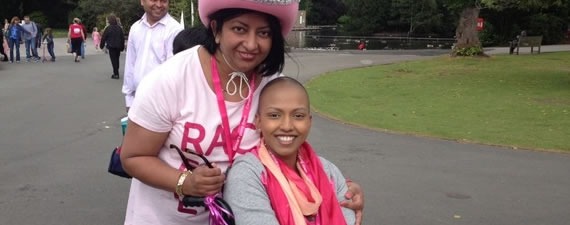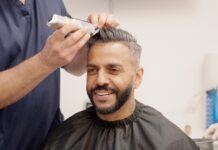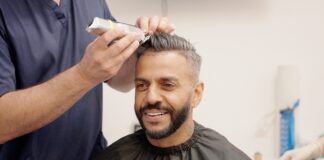Campaign Started to Find Matching Donor

On the 10th March 2014, a few days before her 21st birthday, Riya Dandekar’s life changed forever. “Up until a few months ago, I was very active,” explains Riya, 21, from Solihull. “I took part in ballet, in martial arts and was in the Army Cadet force. I loved trampolining and spending time with my friends. I was working in an Indian restaurant in Birmingham, and I planned to study medicine and be a doctor, like my parents.”
But her busy lifestyle was stopped in its tracks when Riya was diagnosed with a rare type of blood cancer, called Anaplastic Lymphoma. Riya had found a lump in her armpit and began to develop unusual symptoms. “My clothes were itching me and my skin felt like it was burning. I had an ultrasound examination and underwent exploration surgical biopsy and eventually was called to a meeting with my surgeon. “He pulled his chair closer to me and I immediately thought ‘this isn’t good news’. The next few moments went into slow motion. He said “You have lymphoma”. I asked, “Does this mean I have cancer?” And he said “Yes”. Last month (June 2014), Riya was told that her best chance of a cure is a stem cell transplant. Stem cells are produced by the bone marrow but the donation is usually through blood, not the bone marrow. For her to have the best possible outcome, she needs to find a match urgently.
“I have been through three regimes of chemotherapy cycles, all which have left me feeling completely drained, exhausted, helpless, and I am still not cured’’ said Riya. “A stem cell transplant is now my only hope. We need to find a matching stem cell donor as soon as possible. The longer we leave it the harder my body will find it to recover and fight the cancer.” Riya, who lives with her family in Solihull, now faces an agonising wait to find out if a matching donor has been found. “I am a 21-year-old who should be out studying, working, partying, holidaying and discovering myself. But I’m not. Instead I am struggling, crying, hurting, and forever waiting. “I’ve always wanted to join medical school to become a lifesaver but here I am instead fighting, every day, to save my own life.” One third of patients are able to find a matching stem cell donor in their own family. But Riya sadly found out in June that her brother is not a match for her. Her family turned to us and we are currently searching the worldwide registers to try to find Riya a match.
“The process of tissue matching is time consuming and feels like searching for a needle in a haystack. A matching donor could come from anywhere in the world. For example, in the past, German donors have matched Asian cancer patients,” said Riya, who is from an Indian background. “The blood group doesn’t need to match in order for you to be a match.” It is particularly hard for people from Asian and other ethnic minority communities to find a donor through the register, as only 4.5% of the people on Anthony Nolan’s register are Asian. Sarah Roulstone, our Regional Register Development Manager, explains: “It couldn’t be more important that people from these communities sign up to the Anthony Nolan register. For patients from a white Northern European background, their chances of finding a match are 90%. For people from black, Asian and other minority ethnic communities, this falls to just 40%. That just isn’t right, but we can change it and save many more lives by raising awareness and challenging the myths that are out there. “What many people don’t realise is just how simple it is to be a donor.” “Registering with Anthony Nolan simply involves filling in an online form and providing a saliva sample. If you are found to be a match for someone like Riya, the donation procedure is usually similar to giving blood.” Riya is echoing this call for more people to sign up as potential lifesavers.
“When you are in my position, desperately in need of a donor from a similar genetic make-up to yourself, and you are told the statistics, it’s devastating,” said Riya, whose family are now urgently appealing for more people to sign up, especially those from Asian backgrounds. “Even if one life is saved, we will have achieved something.” “But I haven’t lost hope just yet. We’re campaigning every day to get more people to sign up as potential stem cell donors, and when I get better I still want to get into medical school and become a lifesaver.”
You can help people like Riya by registering to be a donor: http://www.anthonynolan.org/node/261



































